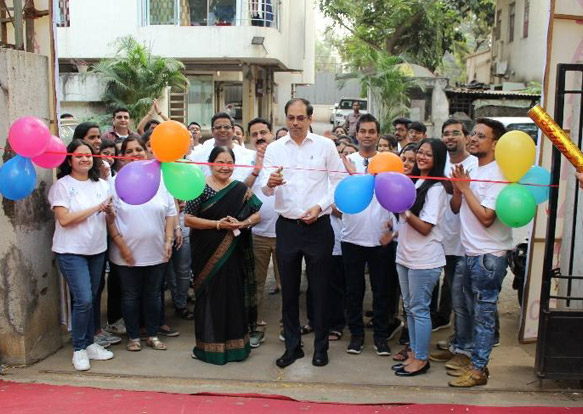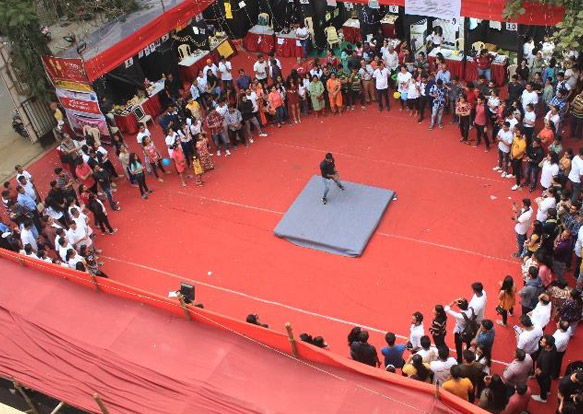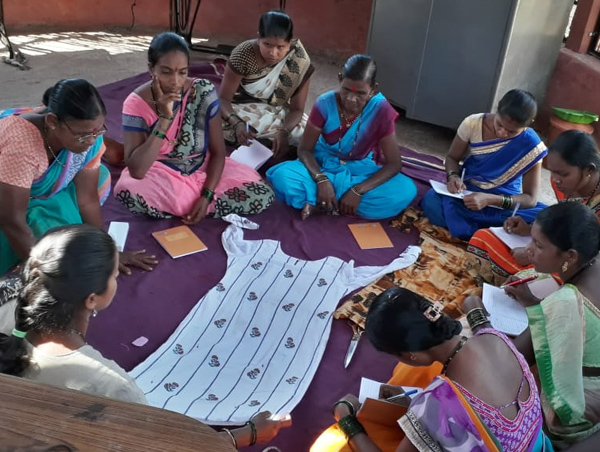Best Practice 01: Bazaarhaat 2020



1. Objectives of the Practice: To impart practical business education to PTVAIM’s full time and part time students.
2. The Context:Bazaarhaat is systematically conducted by PTVAIM for last two years to allow the students to apply the theoretical management concepts taught to them during the classroom teaching, in actual real life scenario. This year Bazaarhaat was held on January 25th 2020, and was inaugurated by MLA Adv. Parag Alavani and former Vice Chancellor of University of Mumbai who is also our Board Member and Mentor, Dr. Snehalata Deshmukh. PTVAIM’s campus hosted 27 stalls ranging from food to artefacts to financial services to nail art to contemporary costumes to games and fun galore. Competitive atmosphere was created for PTVAIM students. 7 stalls were booked by outsiders including students of sister concerns, Amhi Udyogini, and other commercial units. It was a fully funded activity and major sponsors included Union Bank of India, Neckbook, Xenos Playspace etc. The event witnessed footfall of nearly 800 visitors. Team of 49 students from MMS-II batch under the guidance of faculty organising team including Mrs. Shalini Kakkar, Dr. Anand Hindolia, Dr.CA Ajit Joshi, Mr. Abhishek Deokule, Mr. Sujit Apte and CA Rajul Murudkar, put in a lot of efforts in turning this event into a great success.
3. The Practice:
- Bazaarhaat is one of its kind activity undertaken by PTVAIM where students learn about Resources Management, Negotiation, Creativity, Conflict Management and Team Building.
- Students learn importance and relevance of team handling skills, leadership, stress handling, conflict management and get good opportunity to test their own skills in these areas.
- A core team of faculty member i.e. the faculty organising team (Mrs. Shalini Kakkar, Dr. CA Ajit Joshi, Dr. Anand Hindolia, Mr. Abhishek Deokule, Mr. Sujit Apte, CA Rajul Murudkar) is there throughout to monitor and guide students at each step of the activity.
- A core student organizing team is formed. The core student team is further sub-divided into different task teams like decoration team, sponsorship team, promotion team etc. The core student’s team works closely with faculty organising team to execute Bazaarhaat every year.
- The stalls are set up in the institute premises and allotted to students on nominal rent.
- The students are encouraged to come up with creative/ innovative business ideas to compete in the Bazaarhaat and make maximum revenue and profit.
- For the evaluation purpose a team of juries is formed, the jury members visit each stall and evaluate them. On completion of evaluation, the jury members share their evaluation with the faculty organising team.
- Based on the evaluation done by the jury members, the winners of Bazaarhaat are declared by the end of the event.
4. Evidence of Success:
- Total visitors were nearly 800 including local residents, staff and students from sister concerns, students from other management institutes.
- Total 27 stalls of eatables, nail art, craft, apparels etc. were put up.
- Competitive atmosphere was created for PTVAIM students by offering stalls to students of sister concerns, Amhi Udyogini, and other commercial units. Additional revenue generated by offering stalls to outsiders – Rs. 25k
- Students have achieved better understanding of business. There has been a better demand for stalls and more number of stalls was required this year in comparison to previous year.
Problems Encountered and Resources Required:To motivate students to come up with more innovative business ideas is a challenge because they tend to come up with already existing business ideas in order to not make loss in the competition.
Best Practice 02: PTVAIM’s “Project Saksham” – Contributing to Unnat Bharat Abhiyan by PTVAIM



1. Objectives of the Practice:
- To contribute towards Unnat Bharat Abhiyan by empowering Rural Women in Maharashtra to become self-sufficient.
- To develop the skills among them required for making them self-sufficient.
- To sensitize management students to the problems faced by rural population.
- To provide experiential learning opportunities for faculty-students to explore the possibilities of different business sources which can be started in the rural areas involving the local population.
- To provide handholding to rural population in starting a rural enterprise and creating jobs for locals.
- To create opportunities of applied research.
2. The Context: Empowering rural women and to bring about a transformational change in their livelihoods and to contribute to the Unnat Bharat Abhiyan (UBA), a flagship programme of Ministry of Human Resource Development (MHRD), Govt. of India, PTVAIM’s Research Cell and Centre of Entrepreneurship & Innovation completed a project for providing livelihood for Adivasi Women of Tansa River Valley Area, Palghar between January to October 2020. This opportunity enabled faculty and students of PTVAIM to work with these women in identifying development challenges and evolving appropriate solutions for accelerating sustainable growth of villages.
3. The Practice:
On March 17th, 18th and 19th 2019, four students of PTVAIM had surveyed 161 adivasi women of 24 self-help groups (registered under Umed Foundation) from five villages of Vajreshwari & Palghar district. Focus group approach was used to collect information. It was decided to explore the possibility of setting up a cottage unit using “sewing skills”. This also necessitated research of urban markets. So in the month of October 2019 the new batch of MMS students were given a market survey project under the subject of Managerial Economics, where almost 18 groups (approximately 100 students) surveyed retailers and wholesalers in Mumbai to understand different options adopted by them to replace plastic bags and tap requirement of cloth bags. The research findings indicated demand and supply gap for cloth bag. Based on research, the project was designed by three partners – PTVAIM & two NGOs, Learning Space Foundation and Amhi Udyogini. Responsibilities were divided among three partners. Rural area issues were to be tacked by Learning Space Foundation, Experts for training women as well help in marketing products was extended by Amhi Udyogini and PTVAIM was to raise crowd fund for the project, frame operational, marketing strategies, create marketing linkages and give entrepreneurial training to rural project participants interested in taking the project ahead. It was decided to start the cottage unit that will make cloth bags of used as well as unused cloth and sell those to urban market. In the visit, cloth bag samples were scrutinized, tentative sizes and types of bags to be stitched were decided, the area at LSF office that was to be made as a temporary workshop was seen.
4. Evidence of Success: The unit created job for 360 hours and income of Rs.7200/- was generated for 10 to 12 women who stitched 1324 masks. Two more machines were bought by LSF and the unit was expanded from 3 machine unit to 5 machine unit. Five sewing machines (three machines purchased and two machines acquired through donation)
5. Problems Encountered and Resources Required:
The initial challenge encountered was generation of capital for head starting the project. This issue was solved with help from Mr. Pavan Sawant, who helped students strategize the crowd funding efforts. PTVAIM’s students and staff helped to raise an initial crowd funding of one lakh rupees. The unit required 5 sewing machines. Two machines were purchased and others were acquired through donation. Formal training was to be provided to the Tribal women, who were initially sceptical about the project. Government Imposed lockdown, due to Covid-19 Pandemic, led to complete shutdown of market and hence demand for cloth bags. The focus then shifted to production of masks. This led to additional training cost towards manufacturing of masks.


